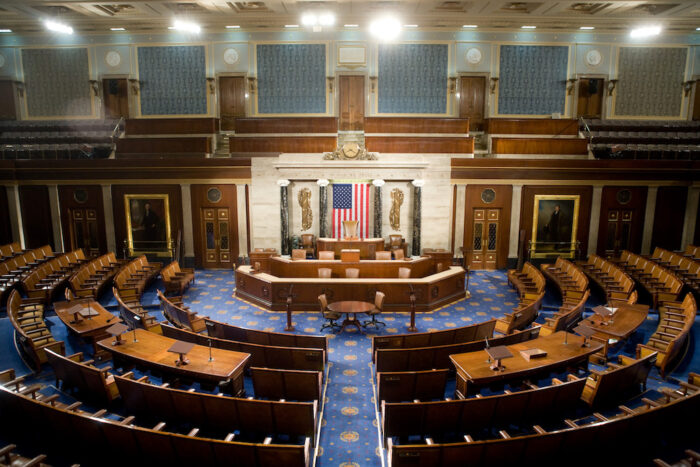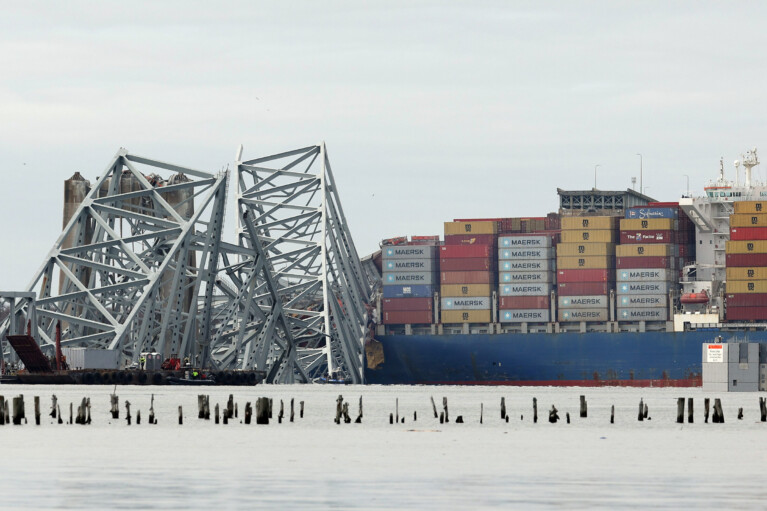Can Md. Help Break Europe of Its Russian Energy Habit? It’s Complicated

Could Maryland play a role in the international push to wean Europe off Russian energy?
On Friday, President Biden and leaders of the European Union signed a pact to create a trans-Atlantic Task Force for Energy Security. The idea is to dramatically decrease Europe’s dependency on Russian natural gas – a way to hit Russia economically for its invasion of Ukraine.
“It will work to ensure energy security for Ukraine and the EU in preparation for next winter and the following one while supporting the EU’s goal to end its dependence on Russian fossil fuels,” the White House said in a statement.
One of the agreement’s key provisions is a commitment by the U.S. to export more liquefied natural gas (LNG) to European Union countries – and that’s where Maryland could, in theory, come in. The U.S. has just eight operating LNG plants – and one, Cove Point, is in Lusby, in Calvert County.
But shipping a substantial amount of LNG that’s produced at Cove Point to Europe isn’t a simple proposition. And any increase in natural gas production has implications for a warming planet.
The Cove Point plant is owned by a consortium of energy companies, and they have long-term contracts with companies in India and Japan to ship gas primarily to those countries. In the parlance of the industry, Cove Point is “fully subscribed,” meaning its production volume is spoken for.
“For what the Biden administration is discussing, that would generally mean reallocating cargo intended for other places,” Ann Nallo, a communications consultant for BHE GT&S, which operates the plant, said in an email. “Raising production volume isn’t something that can be done quickly.”
The foreign companies that ship gas from Cove Point do have the discretion to send small surpluses, when they exist, to other countries, based on market conditions. In fact, shipments to Europe increased in recent months, Nallo said – even before the war in Ukraine. Since U.S. exports of liquified natural gas began in 2016, Cove Point has supplied natural gas to 26 different countries at one time or another, though not simultaneously.
As it is, the infrastructure does not exist to get more natural gas to the Cove Point plant. New gas pipelines would have to be built and extended to the plant – a complicated and controversial process. And the same challenges exist across the country. There are eight LNG plants in the U.S. and the federal government has approved the construction of 14 more, but progress has been slow. Most current and projected LNG plants are on the Gulf Coast.
In the wake of Biden’s agreement with European countries, the Center for Liquified Natural Gas, a Washington, D.C.-based trade organization, said the industry is poised to boost production and is committed to helping Europe break its dependence on Russian energy by setting up “a virtual pipeline” across the Atlantic. But the industry is also going to the federal government with a big ask: Ease regulatory burdens to help us build more infrastructure.
“The LNG industry can build, but regulators must do their part to help expedite the essential infrastructure that is needed here and in Europe to meet these ambitious goals and help our European allies,” said Charlie Riedl, executive director of the Center for LNG.
Biden’s desire to ship more American gas to Europe may make sense from a geopolitical standpoint, but it has profound implications for the worldwide struggle to confront climate change, and this edict seems to be at odds with some of the administration’s most ambitious climate goals.
Natural gas proponents often describe the fuel as clean energy. But a December 2020 study from the Natural Resources Defense Council estimated that methane emissions from U.S.-generated LNG have only about a third less climate impact than coal over a 20-year period.
Most environmentalists believe that building even more LNG export terminals would lock in fossil fuel infrastructure indefinitely, just as the Biden administration is seeking to reduce greenhouse gas emissions and promote a clean energy economy.
The debate mirrors the arguments that have been heard in the Maryland General Assembly this session, as lawmakers moved closer Tuesday to passing a major climate bill. One of the biggest stumbling blocks during this year’s debate was how quickly to phase out the use of gas in commercial and residential buildings.
Maryland utility law is guided to a degree by 2013 legislation that allows utilities to add a surcharge on customers’ bills to pay for improved and expanded natural gas infrastructure. At that time, the legislation was described as a clean energy initiative, but as environmentalists press the state to mandate more renewable energy for the state’s utility portfolio, some activists portray the 9-year-old law as a drag on efforts to fight climate change and a raw deal for consumers.
But the Biden administration insists that the effort to increase LNG exports to Europe isn’t inconsistent with its climate agenda.
The U.S. and European nations “will undertake efforts to reduce the greenhouse gas intensity of all new LNG infrastructure and associated pipelines, including through using clean energy to power onsite operations, reducing methane leakage, and building clean and renewable hydrogen-ready infrastructure,” the White House said in its statement.
What’s more, administration officials argued, reducing the Europeans’ reliance on Russian energy in the short and middle term will help promote the use of clean energy on both sides of the Atlantic in the long term.
“The world has changed,” said Del. Kumar P. Barve (D-Montgomery), chair of the House Environment and Transportation Committee in Annapolis, who described the pact that Biden signed with Europe as a strategic move that’s defensible on the environmental front in the short term.
“But at the end of the day, we have to get rid of combustion altogether,” he said.





 Creative Commons Attribution
Creative Commons Attribution